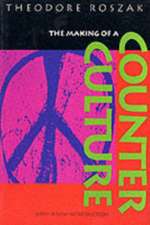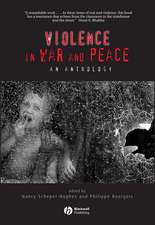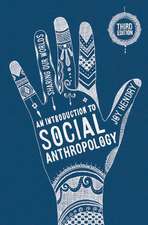Kamikaze Diaries: Reflections of Japanese Student Soldiers
Autor Emiko Ohnuki-Tierneyen Limba Engleză Paperback – 15 apr 2007
“We tried to live with 120 percent intensity, rather than waiting for death. We read and read, trying to understand why we had to die in our early twenties. We felt the clock ticking away towards our death, every sound of the clock shortening our lives.” So wrote Irokawa Daikichi, one of the many kamikaze pilots, or tokkotai, who faced almost certain death in the futile military operations conducted by Japan at the end of World War II.
This moving history presents diaries and correspondence left by members of the tokkotai and other Japanese student soldiers who perished during the war. Outside of Japan, these kamikaze pilots were considered unbridled fanatics and chauvinists who willingly sacrificed their lives for the emperor. But the writings explored here by Emiko Ohnuki-Tierney clearly and eloquently speak otherwise. A significant number of the kamikaze were university students who were drafted and forced to volunteer for this desperate military operation. Such young men were the intellectual elite of modern Japan: steeped in the classics and major works of philosophy, they took Descartes’ “I think, therefore I am” as their motto. And in their diaries and correspondence, as Ohnuki-Tierney shows, these student soldiers wrote long and often heartbreaking soliloquies in which they poured out their anguish and fear, expressed profound ambivalence toward the war, and articulated thoughtful opposition to their nation’s imperialism.
A salutary correction to the many caricatures of the kamikaze, this poignant work will be essential to anyone interested in the history of Japan and World War II.
This moving history presents diaries and correspondence left by members of the tokkotai and other Japanese student soldiers who perished during the war. Outside of Japan, these kamikaze pilots were considered unbridled fanatics and chauvinists who willingly sacrificed their lives for the emperor. But the writings explored here by Emiko Ohnuki-Tierney clearly and eloquently speak otherwise. A significant number of the kamikaze were university students who were drafted and forced to volunteer for this desperate military operation. Such young men were the intellectual elite of modern Japan: steeped in the classics and major works of philosophy, they took Descartes’ “I think, therefore I am” as their motto. And in their diaries and correspondence, as Ohnuki-Tierney shows, these student soldiers wrote long and often heartbreaking soliloquies in which they poured out their anguish and fear, expressed profound ambivalence toward the war, and articulated thoughtful opposition to their nation’s imperialism.
A salutary correction to the many caricatures of the kamikaze, this poignant work will be essential to anyone interested in the history of Japan and World War II.
Preț: 123.57 lei
Nou
Puncte Express: 185
Preț estimativ în valută:
23.65€ • 24.43$ • 19.68£
23.65€ • 24.43$ • 19.68£
Carte disponibilă
Livrare economică 04-18 martie
Preluare comenzi: 021 569.72.76
Specificații
ISBN-13: 9780226619514
ISBN-10: 0226619516
Pagini: 246
Ilustrații: 12 halftones
Dimensiuni: 152 x 229 x 20 mm
Greutate: 0.38 kg
Editura: University of Chicago Press
Colecția University of Chicago Press
ISBN-10: 0226619516
Pagini: 246
Ilustrații: 12 halftones
Dimensiuni: 152 x 229 x 20 mm
Greutate: 0.38 kg
Editura: University of Chicago Press
Colecția University of Chicago Press
Notă biografică
Emiko Ohnuki-Tierney is the William F. Vilas Research Professor of Anthropology at the University of Wisconsin–Madison. She is the author of numerous books, including Kamikaze, Cherry Blossoms, and Nationalisms: The Militarization of Aesthetics in Japanese History, also published by the University of Chicago Press.
Cuprins
Acknowledgments
Author's Note
Preamble
Introduction
Chapter 1: Sasaki Hachiro
“What is patriotism? . . . the killing of millions of people and depriving billions of people of basic human freedom . . . ?”
Chapter 2: Hayashi Tadao
“All will crumble / Japan will meet its finale”
Chapter 3: Takushima Norimitsu
“Why must we fight? We no longer have any purpose for fighting.”
Chapter 4: Matsunaga Shigeo and Matsunaga Tatsuki
“War is another name for murder. . . .”
Chapter 5: Hayashi Ichizo
“We are assigned the location of our death.”
Chapter 6: Nakao Takenori
“Am I to simply die without any meaning to my life?”
Notes
References
Index
Author's Note
Preamble
Introduction
Chapter 1: Sasaki Hachiro
“What is patriotism? . . . the killing of millions of people and depriving billions of people of basic human freedom . . . ?”
Chapter 2: Hayashi Tadao
“All will crumble / Japan will meet its finale”
Chapter 3: Takushima Norimitsu
“Why must we fight? We no longer have any purpose for fighting.”
Chapter 4: Matsunaga Shigeo and Matsunaga Tatsuki
“War is another name for murder. . . .”
Chapter 5: Hayashi Ichizo
“We are assigned the location of our death.”
Chapter 6: Nakao Takenori
“Am I to simply die without any meaning to my life?”
Notes
References
Index













